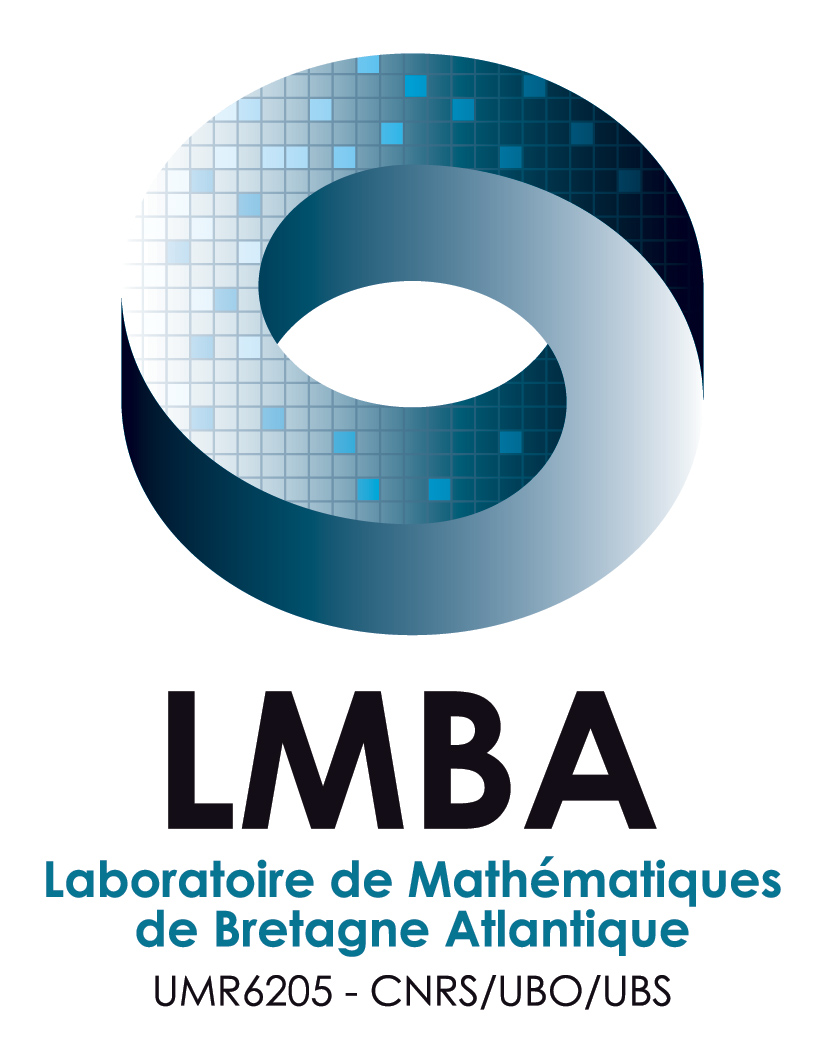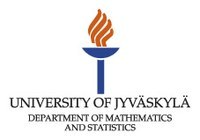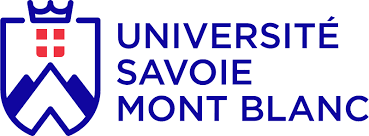









International Seminar on SDEs and Related Topics
Schedule 2023 Autumn
Oct 20, 2023
Theodor Sturm Poster:(University of Bonn, Germany)
Abstract: We present a concise introduction — suitable for pedestrians — to conformally invariant, log-correlated Gaussian random fields on compact Riemannian manifolds of general even dimension uniquely defined through its covariance kernel given as inverse of the Graham-Jenne-Mason-Sparling (GJMS) operator. The corresponding Gaussian Multiplicative Chaos is a generalization to the n-dimensional case of the celebrated Liouville Quantum Gravity measure in dimension two. Finally, we study the Polyakov–Liouville measure on the space of distributions on M induced by the copolyharmonic Gaussian field, providing explicit conditions for its finiteness and computing the conformal anomaly.
Nov 24, 2023 @ 12:30 UTC, European daylight saving time has ended!
Huyên Pham Poster:(Université Paris Cité, France)
Abstract: We propose a novel generative model for time series based on the Schrödinger bridge (SB) approach. This consists
in the entropic interpolation via optimal transport between a reference probability measure on path space and a target measure
consistent with the joint data distribution of the time series. The solution is characterized by a stochastic differential equation on finite
horizon with a path-dependent drift function, hence respecting the temporal dynamics of the time series distribution. We estimate the drift
function from data samples by nonparametric, e.g. kernel regression methods, and the simulation of the SB diffusion yields new synthetic
data samples of the time series.
The performance of our generative model is evaluated through a series of numerical experiments. First, we test with autoregressive models, a
GARCH Model, and the example of fractional Brownian motion, and measure the accuracy of our algorithm with marginal, temporal
dependencies metrics, and predictive scores. Next, we use our SB generated synthetic samples for the application to deep hedging on real-data sets.
Dec 15, 2023 Unfortunately, the talk is cancelled.
Marc Quincampoix(Université de Brest, France)
Abstract: Several optimal control problems of multiagent systems, can be naturally formulated in the space of probability measures on ℝd. This leads to the study of dynamics and viscosity solutions to the Hamilton-Jacobi-Bellman equation satisfied by the value functions of those control problems, both stated in the Wasserstein space of probability measures. Since this space can be also viewed as the set of the laws of random variables in a suitable L2 space, our main aim is to study such control systems in the Wasserstein space and to investigate the relations between dynamical systems in Wasserstein space and their representations by dynamical systems in L2, both from the points of view of trajectories and of (first order) Hamilton-Jacobi-Bellman equations.
Feb 16, 2024
Mingshang Hu Poster:(Shandong University)
Abstract: We obtain an existence and uniqueness theorem for backward stochastic differential equations driven by G-Brownian motion (G-BSDE) in the degenerate case. Moreover, we propose a new probabilistic method based on the representation theorem of G-expectation and weak convergence to obtain the regularity of fully nonlinear PDEs associated to G-BSDEs. This is joint work with Shaolin Ji and Xiaojuan Li.
Mar 08, 2024
Eulalia Nualart Poster:(Universitat Pompeu Fabra and Barcelona Graduate School of Economics)
Abstract: We consider the stochastic heat equation driven by a
space-time white noise on the real line.
The diffusion coefficient is globally Lipschitz, bounded and bounded
away from the origin.
The drift coefficient is locally Lipschitz, non-decreasing and
satisfies the Osgood condition for ODEs.
We show that under these conditions the solution will blow up
everywhere and instantaneously almost surely.
The main ingredient of the proof is the study of the spatial growth
of stochastic convolutions using techniques from Malliavin calculus
and Poincaré inequalities.
This is joint work with Mohammud Foondun and Davar Khoshnevisan.
Apr 05, 2024 @ 11:30 UTC, European daylight saving time has started!
Xue-Mei Li Poster:(EPFL and Imperial College London)
Abstract: We study the stochastic heat equation with a multiplicative noise that is
uncorrelated in time, and has long range correlation in space and found that the correlation
survives in the large scale limit.
May 03, 2024
Markus Reiß(Humboldt-Universität zu Berlin)
Poster:
Slides The animations on the slides are visible for example with Acrobat or Okular
Abstract: Stochastic partial differential equations (SPDEs) are used more and more often to model real-world phenomena. Currently, statistical methodology for these equations is developing rapidly. If there is not only dynamic noise, but also measurement error ('static noise'), we study estimation of coefficients in a parabolic SPDE (e.g. diffusivity, transport or source terms), either parametrically or as functions in space. The analysis exhibits a fundamentally different impact of dynamic and static noise levels. We establish minimax optimality of the convergence rates. Lower bounds are achieved by bounding the Hellinger distance between noisy SPDE observations in path space and a general framework for (linear) stochastic evolution equations in Hilbert space. This gives an information-theoretic insight which coefficients can be easier estimated than others and open problems are pointed out. Some motivation by cell motility experiments in biophysics are provided.
May 31, 2024
Claudia Strauch Poster:(Aarhus University)
Abstract: Theoretical solutions to stochastic optimal control problems are well understood in many scenarios;
however, their practicability suffers from the assumption of known dynamics of the underlying stochastic process.
This raises the challenge of developing purely data-driven strategies, which we explore for ergodic singular control
problems associated to continuous diffusions and Lévy processes. In particular, we describe the specific statistical challenges
arising in the stochastic control context, and we provide a brief overview of the current state-of-the-art for nonparametric
inference of scalar and multidimensional diffusion processes. Finally, we show how these findings translate into exact rates
of convergence of polynomial order for the regret for the considered control problems.